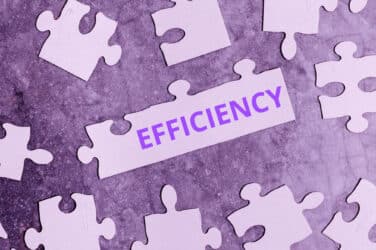
Increased competition is likely to bring about big changes to Europe’s cash equities clearing landscape, say two of its leading players.

Tomas Kindler, head of clearing services, Six Securities Services
“For cash equities clearing in Europe, the major development in the past couple of months has been interoperability,” Tomas Kindler, head of clearing services at Six Securities Services, the post-trade division of Swiss market operator Six Group, told Markets Media.
The push towards full interoperability in cash equities clearing has been on the increase in recent months, although many of the region’s main national exchanges are still loathe to free up access to other clearing houses, thus losing the lucrative revenues on offer from clearing.
“Everybody seems to want interoperability in the market,” Diana Chan, chief executive of EuroCCP, a London-based clearing house, told Markets Media. “It happens because there is a big demand for it.”
For now though, the incumbent exchanges are unwilling to bow to competition and authorize access to only one central counterparty (CCP), with many still owning their own clearing house. For example, Deutsche Börse, operator of the Frankfurt Stock Exchange, Germany’s largest bourse, owns the clearing house Eurex Clearing which is attached to the Frankfurt venue—a so-called ‘vertical silo’ approach.
Bats Chi-X Europe and Turquoise, the leading pan-European multilateral trading facilities, have led the push for full interoperability. Out of the incumbents, only the London Stock Exchange and the Swiss Exchange offer any kind of clearing choice so far.
“When we look at it today, 50% of European on-exchange cash equities trading has competitive clearing arrangements in place,” said Kindler at Six Securities. “You have at least two, three or four clearing houses—it is a major development for the sector.”
Along with Six-x clear, the clearing arm of Six Securities Services, the other competitive clearing houses in Europe are the Netherlands-based pan-European clearer EMCF, EuroCCP and the Anglo-French clearing house LCH.Clearnet. Then there are the national clearers attached to their incumbents.
“Key markets are missing like Germany, Euronext [France, Netherlands, Portugal and Belgium], Italy and Spain,” said Kindler. “And they haven’t made any tangible commitments to interoperability. So far, most of them are vertically integrated market infrastructures. And there seems to be little commercial incentive to open up. The way we see it, it will probably take regulatory action to encourage them to open up.”
European legislation, in the form of the European Market Infrastructure Regulation (Emir), which is due to become law from the end of the year, “basically provides the regulatory basis for what we have put in place over the last couple of months in terms of interoperability”, said Kindler. The Six Securities executive says that the introduction of the updated Markets in Financial Instruments Directive, or MiFID II, which is expected some time in late 2014 or early 2015, will hopefully pave the way for full interoperability, as Emir does not go quite far enough regarding competitive clearing.
“What Emir doesn’t address is access to the trade feeds of trading venues for CCPs,” said Kindler. “That is the crucial point. Interoperability means CCPs agree to interoperate, but that is not sufficient—you need access to the trade feeds. And that has potential to be addressed by MiFID II. But this is still a work in progress and we are still to see the final version.”
Kindler is also hopeful that MiFID II, which is currently snaking its way through Brussels, will “prevent any loopholes for exchanges to drag their feet and basically keep their closed shops”.
EuroCCP’s Chan, though, is slightly less optimistic that MiFID II will bring about greater competition in the post-trade space.
“We will see,” she said. “The provisions are there. Four CCPs interoperate now. The regulations provide for the ability of CCPs to request for interoperability and also provide for CCPs to request for access, but it is too soon to tell how strongly these points will be enforced by the regulations.”
Kindler at Six Securities admits that the regulators have “concluded that there is an additional risk element in interoperability” but says that CCPs now cover their exposures on each other through inter-CCP collateral.
Proponents of interoperability argue that it allows market participants to net and cross-margin trades between venues, thus cutting costs. But it also brings competition, and in competition only the fittest tend to survive.
“The winners and losers have started to crystalize as competition works both ways,” said Kindler at Six Securities. Chan of EuroCCP also concurred with the statement.
Kindler added: “When you look at it from a high-level industry level perspective, there is overcapacity on every layer of the value chain. There is overcapacity in trading, clearing and settlement and new providers are popping up on all layers with new trading venues and new clearing houses—the latest example is Euronext developing its own derivatives clearing house and others might come. Even on the settlement layer.
“Long-term interoperability and the resulting competition will be a driver for consolidation, which is clearly necessary. Another thing is the long-term viability of business models. Prices have come down significantly. And there is overcapacity. Basically the pie is not big enough to serve everyone. In some cases, CCPs are heavily loss making—how long will they survive?”






